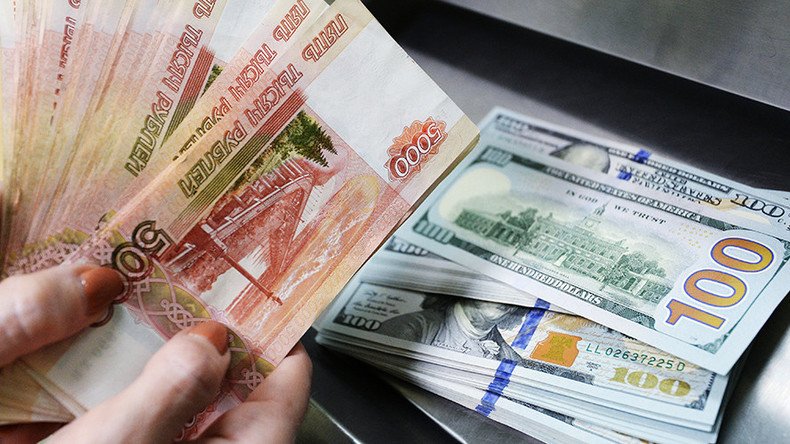Ruble at lowest point of 2015

The Russian ruble has fallen to 72.47 against the US dollar, its worst exchange rate since December 17 last year. Fluctuations in the exchange rate are connected with further falling oil prices.
The euro was trading at 79.55, which is its highest level against the ruble since August 26.
During Monday trading at the Intercontinental Exchange (ICE), Brent crude prices fell to $37.03, which is 2.2 percent below the closing level of the previous trading session.
Herman Gref, the CEO of the largest Russian bank – Sberbank – had predicted the fall of the ruble.
Worst of crisis over for Russia, but country needs to adjust to life with cheap oil - #Putinhttps://t.co/lPas89yZLcpic.twitter.com/GW8vbZUvQ6
— RT (@RT_com) December 17, 2015"Our entire economy is dependent on the key parameter - the price of oil. Today, the price is $35-36 per barrel. We can say there will be plus or minus 10 percent fluctuation in the upcoming months,” Gref told Rossiya 24 TV channel on Friday.
Russian Deputy Finance Minister Aleksey Moiseev also said the end of 2015 will see a weak ruble, as it usually happens in November and December. "In summer, the ruble becomes stronger, then falls in early autumn. Then, there is growth in the middle of the autumn and another drop at the end of the year," he said.
Market uncertain about future oil prices https://t.co/rHo8iHsoUEpic.twitter.com/fOwxtZM6Uk
— RT (@RT_com) December 24, 2015In the budget for 2016, Russia was working on $50 per barrel and 63.3 rubles per dollar. However, as the glut persists and oil prices continue to fall, the Kremlin is ready to revise the budget.
According to Economic Development Minister Aleksey Ulyukaev, $40 oil doesn’t threaten stability in the economy, but won’t allow GDP, production and consumer demand to turn positive next year.












